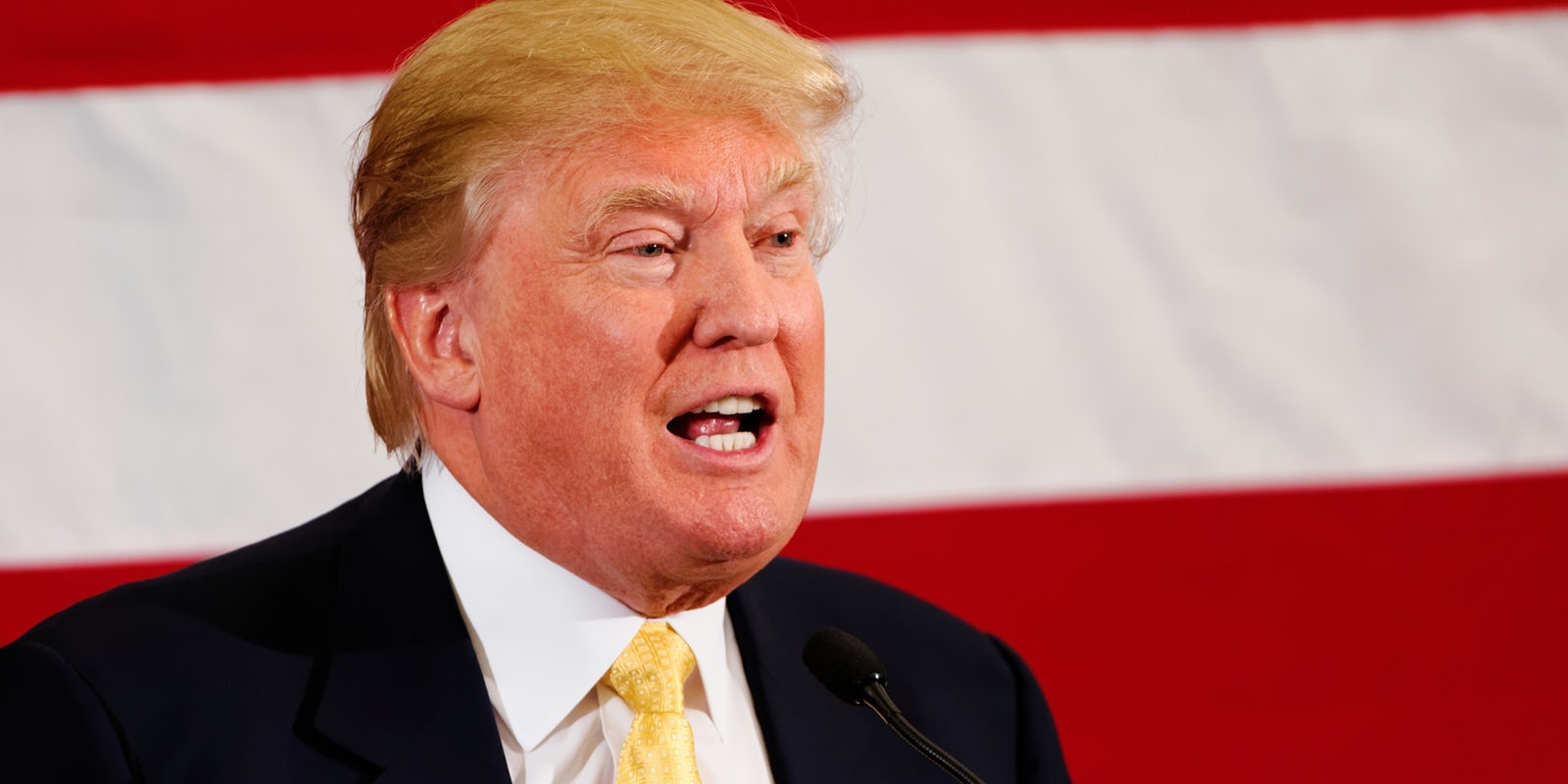Donald Trump cleaned up in Delaware on Tuesday night, besting challengers Sen. Ted Cruz (R-Texas) and Ohio Gov. John Kasich in the Republican primary.
Trump finished with more than 60 percent of the state’s vote, with Kasich finishing second at 19 percent, and Cruz at 15.
While Delaware awards just 16 Republican delegates, Trump stands to win all of them thanks to the state’s allocation rules.
Last week, Trump drew thousands of supporters to the Delaware State Fairgrounds in Harrington, where he joked about owning more than 370 registered entities in the state that’s notorious as a corporate tax haven. He touted his plans to build a wall at the southern U.S. border and the crowd began chanting: “Build a wall!”
“Who’s going to pay for it?” Trump asked, to which the crowd replied: “Mexico!”
Mexico’s President Enrique Peña Nieto has asserted that there’s “no scenario” in which Mexico will pay for Trump’s wall.
In March, Nieto compared Trump’s rhetoric about Mexican immigrants, whom he’s referred to as “killers” and “rapists,” to that of Adolf Hitler and Benito Mussolini. In a February interview, former Mexican President Vicente Fox told Fusion: “I’m not going to pay for that fucking wall.”
Trump has repeatedly claimed the wall would cost around $8 billion, but experts have priced the colossal undertaking at closer to $25 billion.
Delware newspapers reported an unprecedented turnout for Trump at the polls. The surge of participation is likely tied to the state’s atypical primary; by late April, it’s usually apparent who will receive the Republican nomination. Trump had a substantial delegate lead on Tuesday morning when the First State woke up to cast its ballots, but he had yet to decisively sweep Cruz—and to a lesser extend, Kasich—out of the picture.
Delaware’s primary is a closed contest, meaning only registered Republicans are permitted to vote. Unaffiliated voters account for roughly 23.3 percent of the state’s approximately 600,000 registered voters, the Associated Press reports.
The 2016 election continues on May 3, when candidates from both parties will vie for voter support in Indiana.


